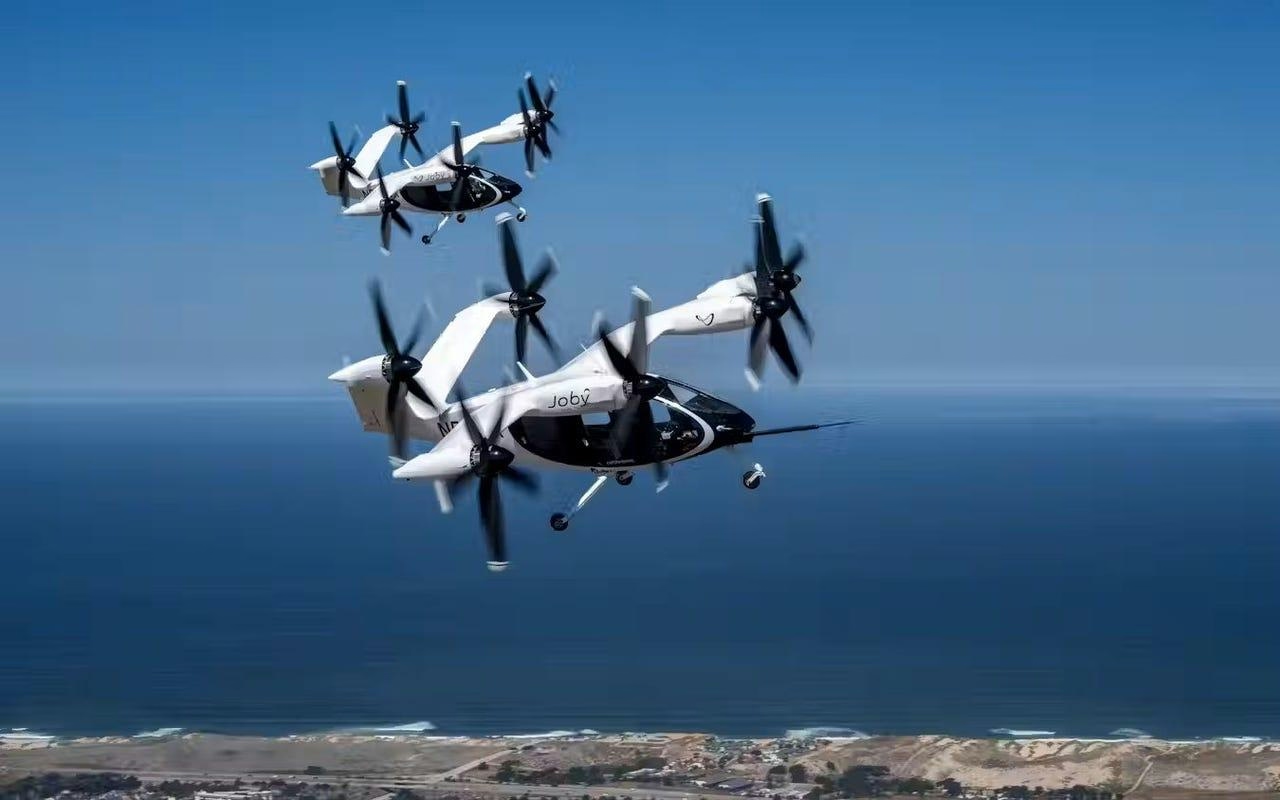AeroGenie — Tu copiloto inteligente.
Tendencias
Categories
Joby Aviation Conducts Electric Air Taxi Test Flights in Marina

Joby Aviation Advances Electric Air Taxi Testing at Marina Municipal Airport
Santa Cruz-based Joby Aviation has recently conducted a series of test flights for its electric air taxis at Marina Municipal Airport, marking a significant step forward in the development of urban air mobility. The company’s innovative aircraft, equipped with six electric motors, are designed for vertical takeoff and landing (VTOL), enabling efficient operation within congested city environments. Joby emphasizes that its air taxis operate at noise levels 100 times quieter than traditional helicopters, a critical factor for urban deployment. Each vehicle is engineered to accommodate up to four passengers, a pilot, and luggage.
Peter Wilson, Joby’s director of flight standards and training, described the experience as comparable to flying in a helicopter, highlighting the comfort and accessibility of the aircraft. The test flights, which typically cover distances of up to 10 miles, serve to gather essential performance data. This includes monitoring the behavior of motors, propellers, and batteries across various speeds. Wilson explained that these flights enable the company to validate and refine computer models that predict aircraft performance under different conditions, thereby enhancing future operational efficiency.
Safety Measures and Future Prospects
Safety remains a paramount concern for Joby Aviation, reflected in the aircraft’s design featuring multiple redundant systems. Wilson noted that if a primary system fails, secondary and tertiary systems are in place to ensure the completion of every flight. The company also employs advanced flight simulators that replicate both the physical and software environments of the aircraft, providing immersive pilot training and further validating system reliability.
To date, Joby has accumulated over 40,000 miles in test flights and recently expanded its demonstration program to Dubai, where it anticipates commencing passenger flights as early as next year. However, before launching commercial operations in the United States, the company must secure certification from the Federal Aviation Administration (FAA), which imposes rigorous safety standards.
Despite these advancements, Joby faces considerable challenges. Regulatory approval remains a significant hurdle, alongside the technical complexities of integrating systems and scaling operations for commercial use. The competitive landscape is intensifying, with rivals such as Archer Aviation conducting their own flight trials and promoting technological innovations. Strategic partnerships, including one with Delta Air Lines, underscore the industry’s growing interest in Joby’s potential.
Market response to Joby’s progress has been largely favorable, yet the company must continue to demonstrate safety, reliability, and scalability to maintain its leadership position. As Joby Aviation advances toward commercial launch, the broader race to shape the future of urban air mobility is accelerating, promising quieter, cleaner, and more efficient transportation solutions for cities worldwide.

Emirates Unveils Cabin Design for New Boeing 777X

Eighteen Years On, the Airbus A380 Remains Central to a $34 Billion Airline

How a boom in luxury airline seats is slowing down jet deliveries

Navitaire Outage Attributed to Planned Maintenance

DigiYatra Debuts Outside Aviation at India AI Impact Summit

Vietnam Orders Strengthen Boeing’s Commercial Outlook

Airbus Signals Uncertainty Over Future A400M Orders

JobsOhio Awards $2 Million Grant to Hartzell Propeller for Innovation Center

Collins Aerospace Tests Sidekick Autonomy Software on YFQ-42A for U.S. Air Force CCA Program

How the Airbus A350-1000 Compares to the Boeing 777
